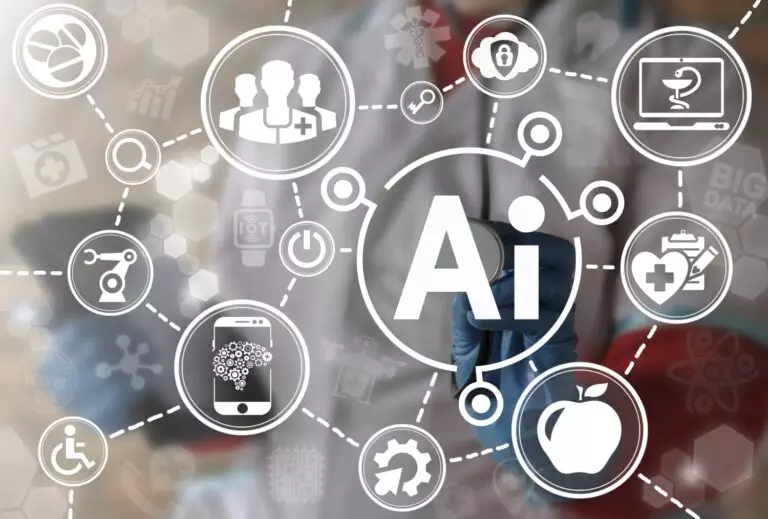Artificial intelligence (AI) is rapidly reshaping the world around us, from the internet to how we receive medical care. Believe it or not, it’s also impacting the realm of addiction treatment and recovery – and has been for some time.
Addiction has always been a complex issue, often calling for solutions as unique as the individuals facing it. This is where AI has the potential to help, providing an unmatched ability to personalize and adapt.
While it is evolving at an astounding rate, AI’s use in the realm of addiction is nothing new. For over a decade, the technology has been frequently employed to identify patterns, predict outcomes, and customize therapeutic interventions for improved patient care. This meta analysis shows the extent to which machine learning has been used to study addiction.
However, despite its wide range of potential benefits, the implementation of AI within addiction treatment requires careful consideration of ethics, privacy, and responsibility. No matter what the future holds, we believe it’s essential these tools are used judiciously and in a manner that respects each person.
That being said, the future of addiction treatment could benefit greatly from AI’s capabilities, potentially changing how we approach recovery forever.
What is AI?
At its core, AI is a field of computer science focused on creating systems capable of performing tasks that normally require human intelligence. Think about tasks like recognizing speech, making decisions, or translating languages. Instead of being explicitly programmed to do a specific job, these systems use algorithms and statistical models to “learn” from data. This process of learning from data is often referred to as machine learning. Essentially, the more data it processes, the better it becomes at its task, mimicking the way humans learn from experience.
Now, this doesn’t mean AI has feelings, consciousness, or true understanding. Fortunately for us, it’s not at the level of the sentient robots often depicted in sci-fi movies! It’s more about processing vast amounts of information rapidly, identifying patterns, and making informed decisions.
How addiction treatment could be improved
Addiction is a complex issue that affects millions globally. Based on data from the National Survey on Drug Use and Health (NSDUH), 19.7 million American adults aged 12 and up battled a substance use disorder in 2017. What’s more, every person suffering from an addiction has their own unique set of physiological, psychological, and social challenges.
Historically, the landscape of addiction treatment has been a blend of behavioral therapies, support groups, detox programs, and medical interventions. While many of these traditional methods have proven effective for numerous individuals, addiction’s relapse rate hovers between 40-60%. Clearly, this statistic underscores a pressing need for more dynamic and adaptable treatment solutions.
The cornerstone of most addiction treatments has been a human-centric approach, emphasizing personal interaction, group therapy, and one-on-one counseling. Methods like the 12-Step program have been pillars in the recovery community, offering structure and communal support.
Yet, while these programs have been (and will continue to be) life-changing for many, they aren’t perfect. The reason is simple: every person’s journey with addiction is unique, each encompassing distinct triggers, challenges, and recovery paths. With many traditional methods operating on a one-size-fits-all principle, many struggling with addiction still find themselves unsupported or misunderstood.
Furthermore, traditional methods have to keep up with the ever-shifting societal dynamics of the digital age. Constantly changing family structures, advancing technology, and shifting cultural norms all impact addiction patterns and recovery needs.
Rather than something to dismiss out of hand, or fear, AI could emerge as a beacon, signaling a potential evolution in addiction care and recovery support.
The power of personalization with AI
As addiction treatment continues to evolve, one element remains clear: the pressing need for personalization. Artificial Intelligence could offer innovative ways to do this. Its potential in addiction treatment lies in its exceptional ability to tailor experiences. By analyzing unique behavioral patterns, personal histories, and triggers, the technology can craft a recovery roadmap that aligns closely with each individual’s specific needs.
It can help recognize the subtle cues, moments of vulnerability, and unique challenges each person might face on their recovery journey. Such precision could significantly enhance the effectiveness of interventions, providing timely and relevant support at times of need.
But that’s not all, the personalization aspect of AI extends beyond data analysis. AI-driven apps and tools can serve as real-time companions, offering feedback, insights, and coping strategies based on real-world situations.

Since we opened our doors 15 years ago, Maui Recovery has prioritized a highly-tailored approach, addressing the whole person rather than just their symptoms. We understand that no two addiction journeys are the same, which is why our treatment methods are never one-size-fits-all. Any proven technology solutions that can augment our approach and increase our clients’ rates of recovery (without compromising a human-centered approach), is a step in the right direction.
Beyond the recovery center
As we tell all our clients, recovery doesn’t stop when you leave our center. It’s a life-long journey requiring ongoing support and careful management.
This is where AI has the potential to make a significant difference.
Through apps and wearable devices, AI can provide a steadfast presence to help keep those in recovery on track and prevent relapse. This technology is fairly new, so more research needs to be conducted. However, so far the results show promise in the prevention of relapse for addiction as well as a variety of mental illnesses.
Put it like this: Say you’re in recovery and are nearing a location or situation that’s historically been a trigger. The AI tool, recognizing this, would send a timely alert or suggestion to help you navigate the potential pitfall. By consistently aligning interventions with your unique context, the technology could promise a level of personalized support previously unimaginable.
Its consistent feedback and support can fill the gaps when a therapist or support group isn’t immediately available. Several AI apps have already been developed with this purpose in mind. Below, we’ll take a closer look at three of the most popular.
Showcasing AI applications in addiction recovery
The surge of AI in addiction recovery isn’t just theoretical; its practical applications are already changing lives and have been doing so for over a decade. Below are a few notable apps that have harnessed the power of AI for this noble cause:
Addicaid
Launched in 2013, Addicaid primarily functions as a recovery tracker. It utilizes AI to monitor symptoms and facilitates connections with healthcare providers. By recognizing common signs like nausea or sweats, it predicts potential relapses, providing the user with immediate support and coping strategies. It also allows those in recovery to monitor their progress, check in with counselors, and connect with peers in recovery programs.
Workit Health

This app takes a more comprehensive approach, offering virtual care for both substance use and mental health disorders. With AI at its core, it allows users to partake in courses, stay in touch with their care teams, and receive timely medication notifications. Feedback from users suggests decreased mental health struggles and enhanced recovery progress. What’s more, this study found that the app proved effective at treating Opioid Use Disorder in rural populations.
SoberTool
Focusing on daily engagement, the SoberTool app assists in relapse prevention. It encourages users to detail their cravings, responding with tailored strategies to overcome them. With features like tracking sobriety length and estimating the money saved by staying sober, it not only aids in recovery but also motivates and celebrates milestones.
While these apps have showcased the potential of AI in addressing addiction and relapse prevention, they aren’t without limitations. A reliability on user input, potential data privacy concerns, and the challenge of ensuring that AI suggestions are always medically sound, are all areas that still need attention. However, as technology evolves, so will its role in creating a future with more effective, personalized addiction recovery tools.
Ethical implications of AI in addiction treatment
As AI’s role in healthcare and addiction treatment expands, so do concerns about the ethical implications of its use. The topic of data protection and user privacy sits at the forefront of these discussions.
Given that apps like SoberTool or Workit Health require users to input personal and sensitive information, ensuring this data remains confidential is critical. Unauthorized access or leaks could have severe repercussions, potentially impacting people’s personal and professional lives.
Another pivotal concern is the potential over-reliance on technology. While AI can provide continuous support, there’s a risk that some might see it as a complete substitute for traditional treatments, potentially sidelining critical human intervention.
This brings us to a fundamental question in addiction treatment: How do we strike the right balance between AI assistance and the human touch? The answer lies in integration, and ensuring AI acts as a supplementary tool rather than the sole solution.
Remaining human-focused – integrating AI with traditional addiction treatment methods

While the capabilities of AI in addiction treatment are undeniably promising, it’s essential to remember that it shouldn’t overshadow human-led therapies. No technology, no matter how advanced, can replicate the empathy, understanding, and nuanced care that therapists, healthcare providers, and support groups bring to the table.
The power of human connection in the journey of recovery is irreplaceable. A therapist (whether using CBT or MBSR) can adjust their approach based on subtle cues and emotions – things that AI might miss. Support groups also offer a shared experience, fostering an irreplaceable sense of community and mutual understanding that can be immensely healing.
Additionally, AI could never replace the kind of experiential therapies we offer at Maui Recovery, like equine therapy or adventure therapy. The nature, human interaction, and activity-based elements are precisely why these exhilarating treatments facilitate breakthroughs in our clients.
That being said, integrating AI could still provide a more effective approach to holistic treatment. In our view, a hybrid model would be preferable; one where supplementary AI offers data-driven support and personalized feedback, but always remains secondary to regular human-led sessions. In this way, clients can get the best of both worlds and increase their chances of lasting recovery.
How Maui Recovery can help
In the journey of addiction recovery, every individual deserves a comprehensive approach tailored to their unique needs and experiences. At Maui Recovery, we understand the complexity of addiction and the multifaceted challenges it poses.
What sets Maui Recovery apart is our commitment to treating the whole person, always meeting them “where they’re at”. We offer programs crafted with the utmost care, reflecting the personal struggles, strengths, and aspirations of each individual we serve.
If any technology proves effective in helping our clients heal or stay on track, we’re certainly open to it. However, there’s no replacement for the deep human connection provided by our experienced therapists and support groups. Likewise, for our powerful activity-based treatments, and the healing power of the Island of Maui.
While we’ll consider incorporating anything that could improve the healing potential of our clients, we’ll always stay true to our human-focused ethos: the timeless value of human compassion, the power of nature, and the inner hero in all of us.
If you’d like to talk to us about our approach, and how we can help you or a loved one, contact us today for a confidential talk with one of our experts.









